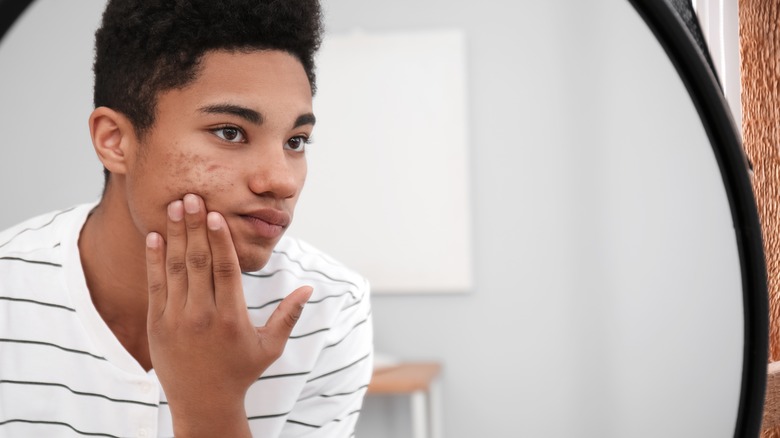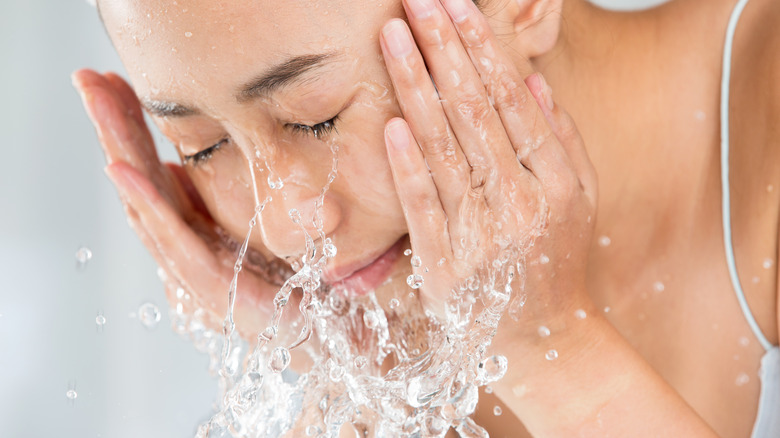Is Hydrogen Peroxide Safe To Use On Acne?
If you have acne, you've probably tried everything to get rid of it. There are many at-home methods out there, and some work better than others. One popular method you may have seen is using hydrogen peroxide, which is an affordable product often used for cleaning or treating wounds thanks to its antibacterial properties. Some people believe that applying hydrogen peroxide to your skin can kill the bacteria that causes acne and dry out any excess oil that may also be contributing to your skin condition (via Healthline).
While this may sound enticing, the science doesn't support the idea that hydrogen peroxide can effectively help your acne. It may actually increase your likelihood of developing acne scars if you have picked at your pimples. Hydrogen peroxide can also be harsh on the skin and may cause redness or irritation. If you do try to use it on your skin, be sure to dilute it with water before applying, and only let it sit on your skin for a few minutes before rinsing it off. This will help you avoid irritation.
How to treat acne
Acne is caused by excess oil production, clogged pores, and bacteria (via Mayo Clinic). This can happen due to many factors, including stress, washing your face too much, hormones, and more. The most common symptom of acne is pimples, but acne can also cause blackheads, whiteheads, and cysts, which are other types of blemishes.
There are many ways to treat acne, but the best way will depend on the cause of your acne, its severity, and the sensitivity of your skin. People with hormonal acne may think about taking birth control, which works by controlling the hormones that help your body produce sebum (via Scripps). According to Teen Vogue, keeping your skin clean is one of the most important ways to treat many types of acne. Use a cleanser that contains breakout-fighting ingredients like salicylic acid and benzoyl peroxide. Exfoliating your face a few times a week can also help by removing dead skin cells that can clog pores, but you have to be careful not to overdo it and damage your skin. Some people also avoid moisturizing oily and acne-covered skin, but this can actually lead to more oil production and acne in the long run.


